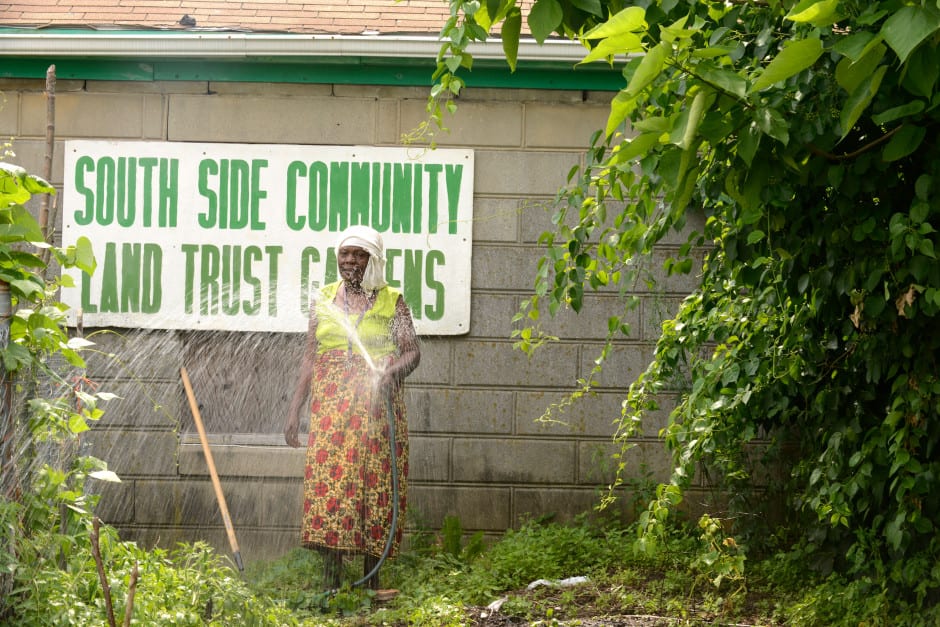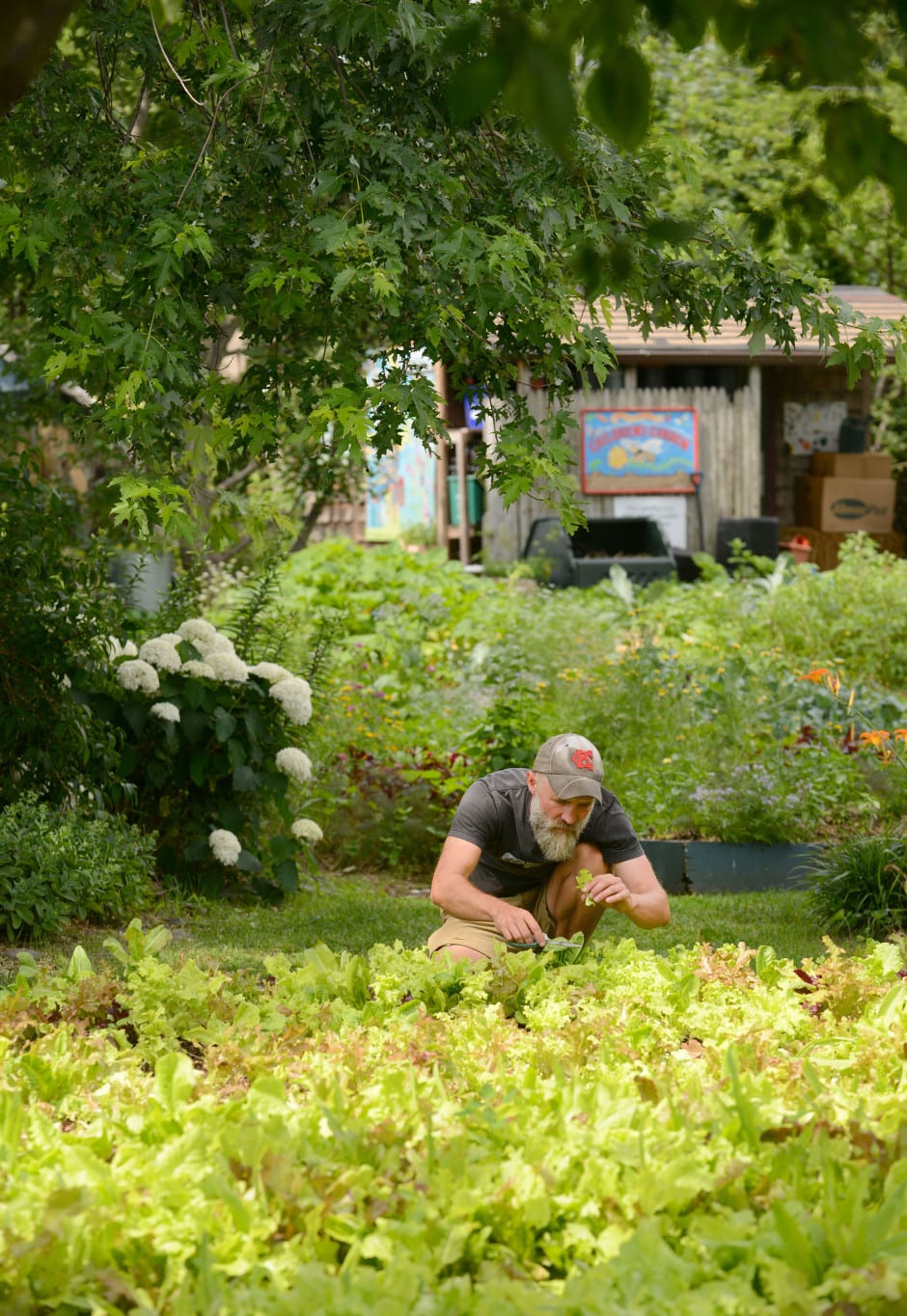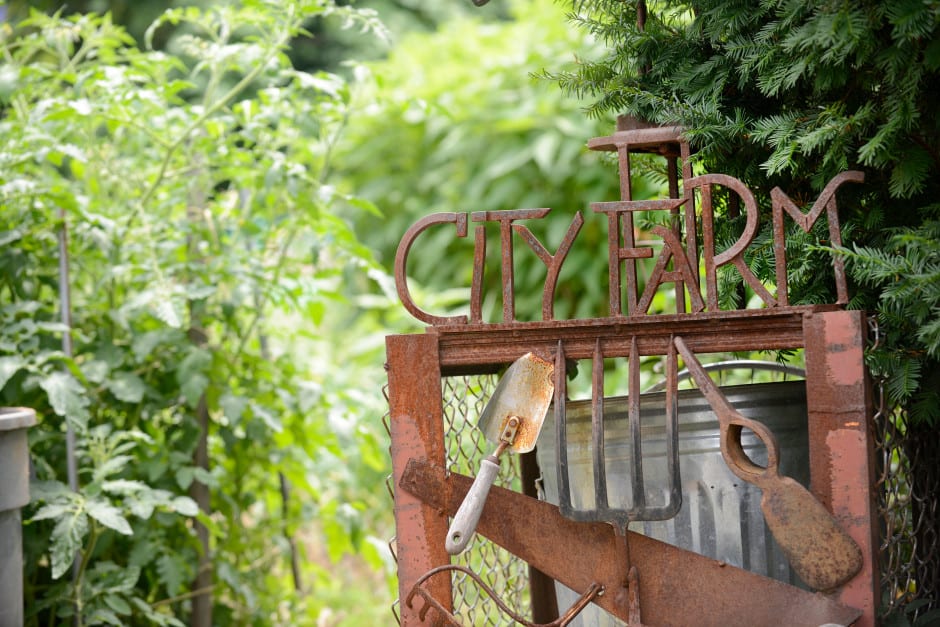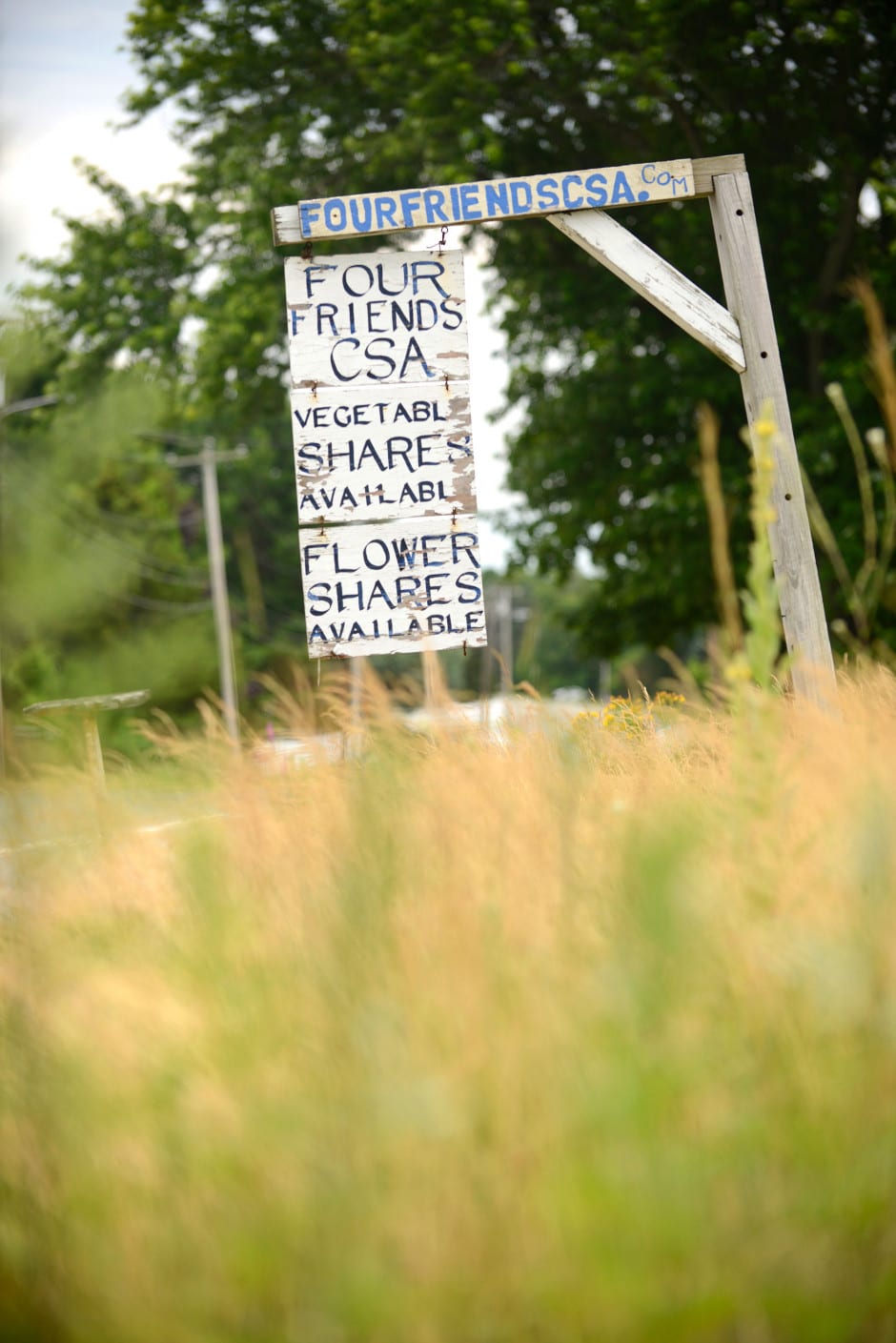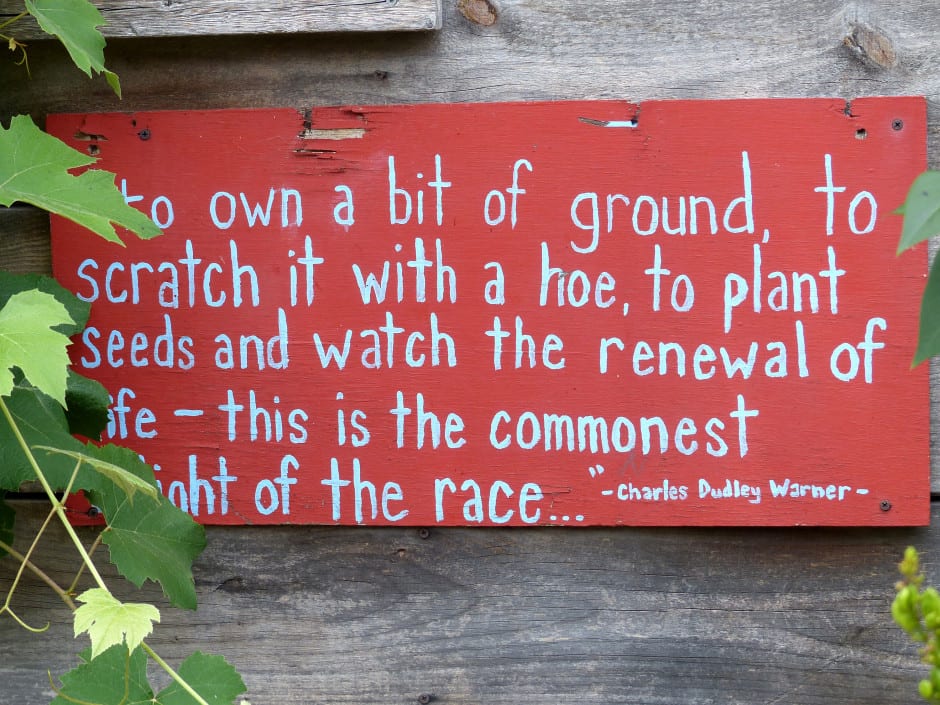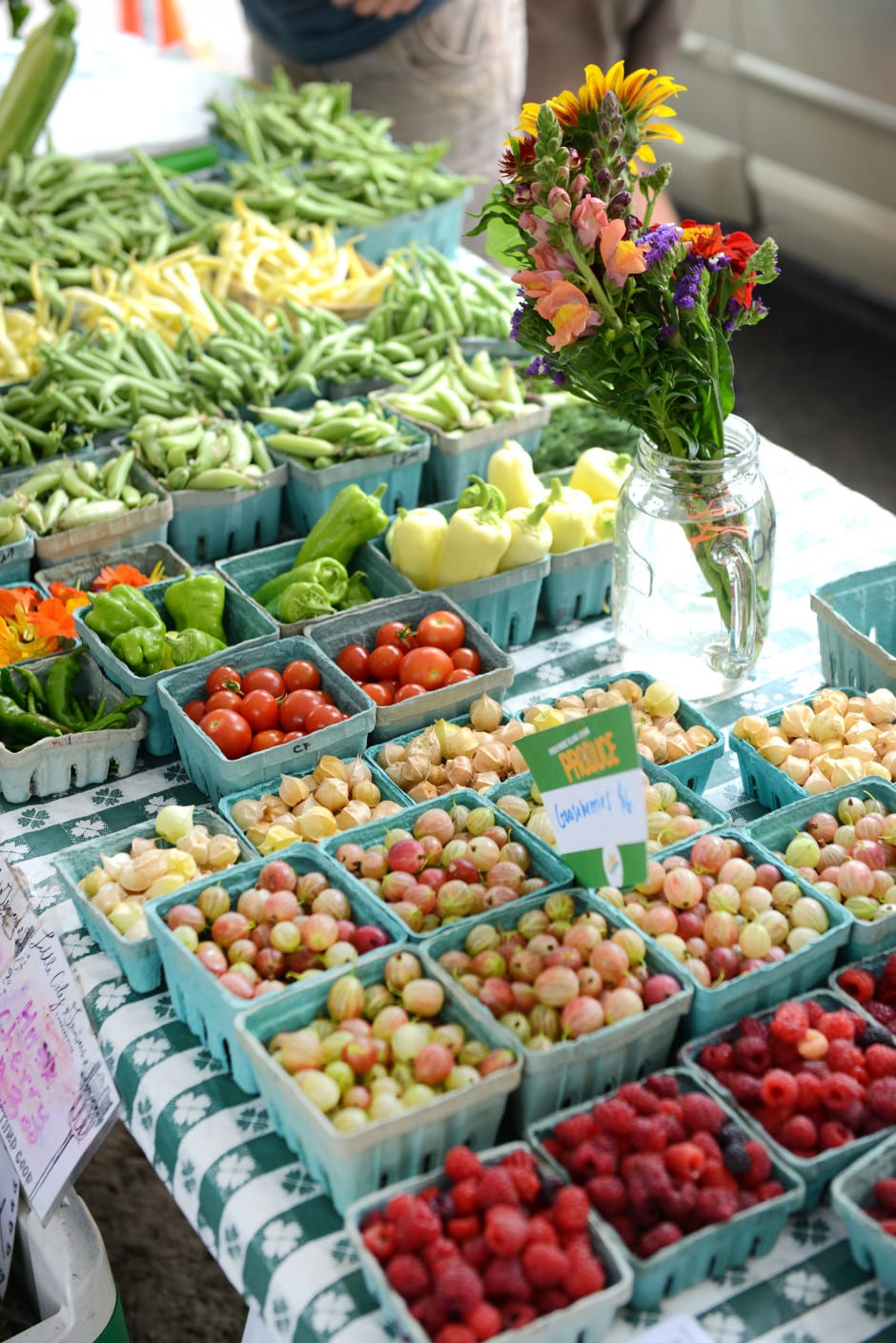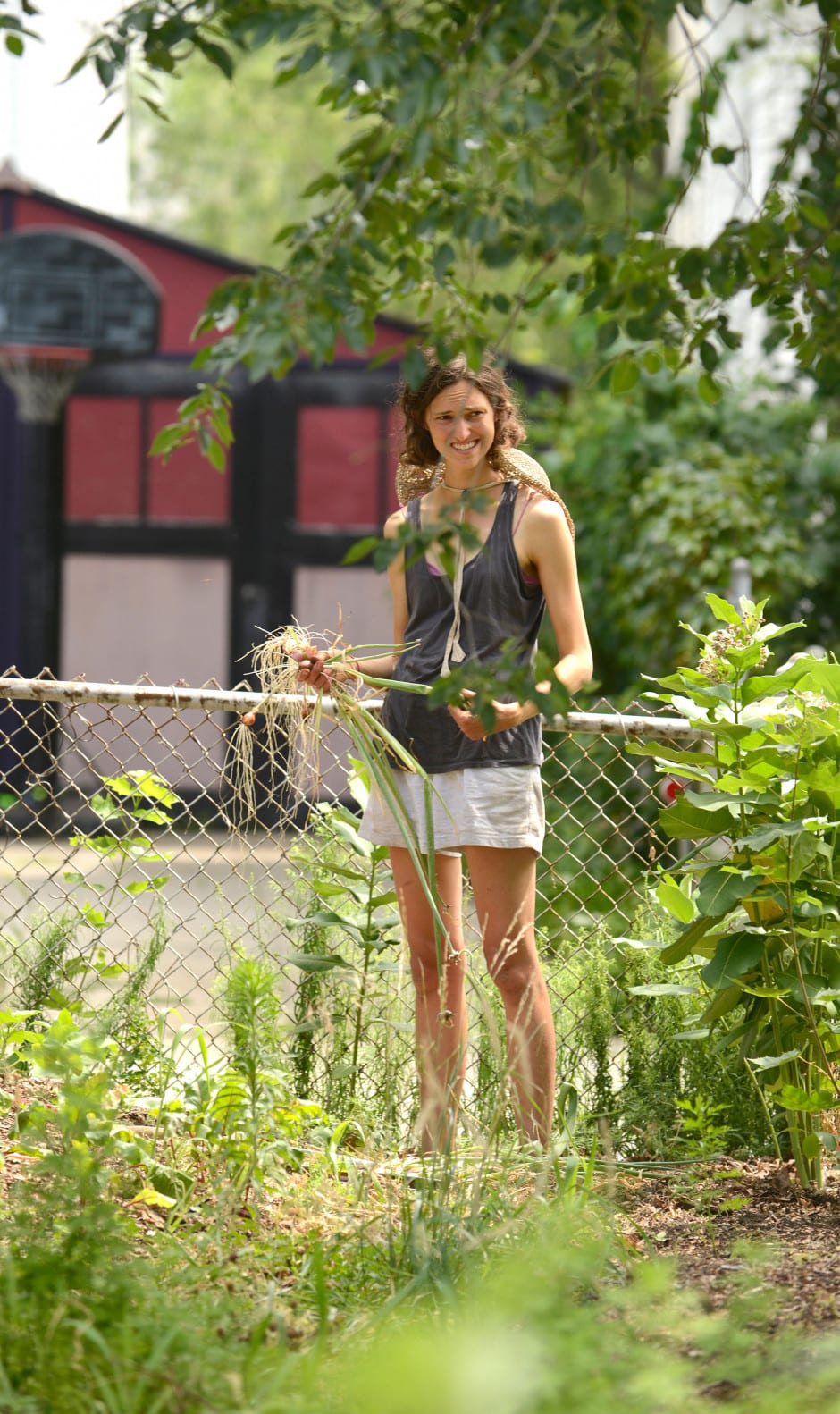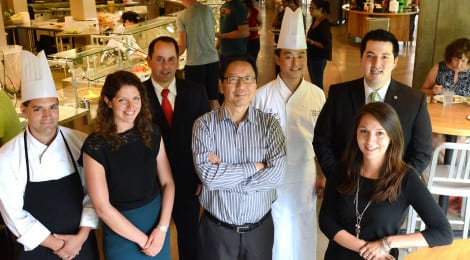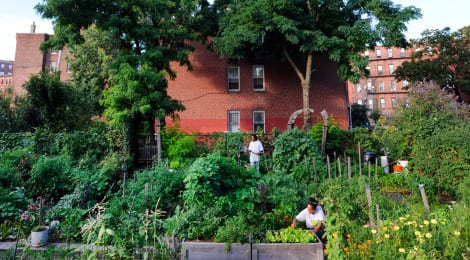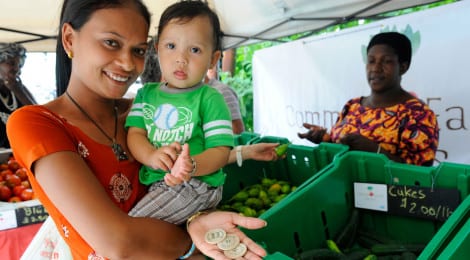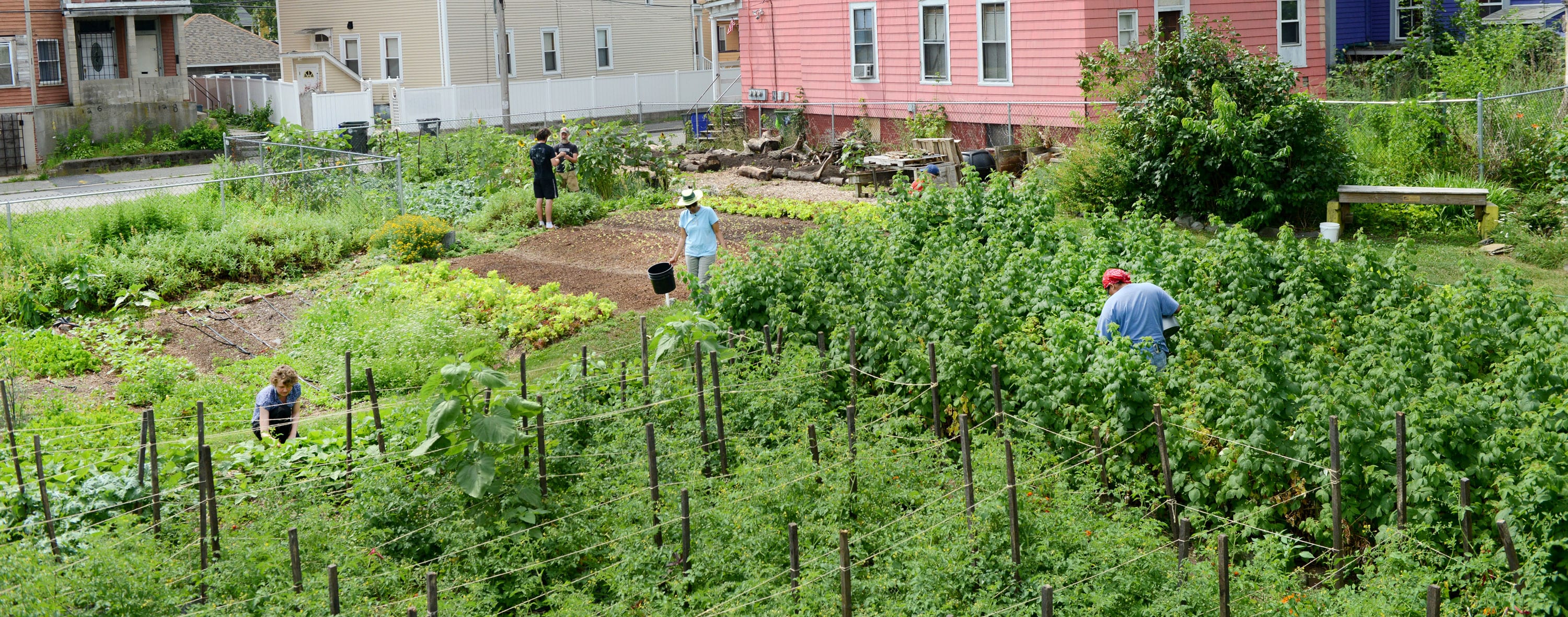
Grantee Profile
Southside Community Land Trust
Joseph Medina is the current apprentice for Southside Community Land Trust and a resident of Providence. Every week, Joseph harvests fresh produce from City Farm, a three-quarter acre urban farm in the heart of Providence’s Southside neighborhood owned by SCLT. The produce is then sold directly to Providence residents at a number of area farmers markets.
“Customers come to our tent and say ‘Oh are you from City Farm?’ They don’t know me personally,” Joseph says, “but they treat me like they’ve known me for ten years. They feel a connection to what we’re doing and they feel like they are part of it.”
City Farm is well-regarded by the people of Providence. It boasts a variety of educational programs for local residents including workshops, tours, school trips, and the apprentice program. SCLT’s commitment to local residents has been unmistakable since its formation in 1981.
SCLT began as a partnership between Brown University students and Hmong refugees in South Providence. Both groups recognized that there weren’t many employment opportunities available to the residents of South Providence. Through the creation of SCLT, they hoped urban agriculture could become a viable opportunity for some residents.
“The original mission was to create opportunities for people in South Providence to live sustainably,” says Margaret DeVos, the executive director of SCLT. “It is not just environmental sustainability, but also economic sustainability.”
Creating opportunities for the people of Providence is at the core of SCLT’s work. By helping connect aspiring farmers with land, SCLT is ensuring the economic security of farmers while also giving them the tools to farm in an environmentally conscious way.
Accessibility, whether to education, training, or land on which to grow food, resonates strongly throughout SCLT’s work. The land trust owns 19 community gardens and farms in Providence which translates to 350 families having the ability to grow, eat, and sell fresh, healthy food.
“You don’t wait for the people in charge of the food system to change their marketing strategy when more and more young people are developing diabetes,” Margaret says. “You do whatever you can to make your community healthier.”
SCLT also supports six “Network Hubs,” community gardens designated as spaces to build community leadership and agricultural capacity in the city. These Network Hubs are visited by community members in order to attend gardening workshops, obtain agricultural resources such as compost or seeds, and to share gardening tips and knowledge with their neighbors.
While the reach of Southside Community Land Trust is broad due to its diverse programming, Margaret boils down their work to just a few important words: “We help people grow food.”
It is a simple concept, but it has a profound impact on an urban area in which healthy, fresh food is difficult to come by.
“Most of the people we work with are living in communities where there is not enough fresh, healthy, and affordable food. We do the work that makes it available to everyone,” says Margaret.
Making healthy food more available within Providence would not be possible without their efforts to connect aspiring farmers with land.
“An acre of agricultural land in Rhode Island costs $11,800. It’s the second highest price for agricultural land in the country after New Jersey,” explains Margaret.
SCLT also operates Urban Edge Farm, a 50 acre farm located just outside of the city on land owned by the state of Rhode Island. Urban Edge is a model for responsible land stewardship where six small and beginning farmers practice sustainable agriculture.
The general operating support from the Kendall Foundation has been crucial for SCLT to continue making agricultural space and other resources available to the people of Providence.
As urban agriculture increasingly becomes viewed as a solution, others will look to SCLT as an example of an organization that has created economic opportunities for residents while strengthening the availability of healthy, sustainable food in the process.
“Giving people access to fresh, healthy food is huge,” says Joseph. “There’s no better way to do that than giving them the ability to grow their own food.” Southside Community Land Trust is leading the charge to do that.
Learn more: Southside Community Land Trust
Most of the people we work with are living in communities where there is not enough fresh, healthy, and affordable food. We do the work that makes it available to everyone.
